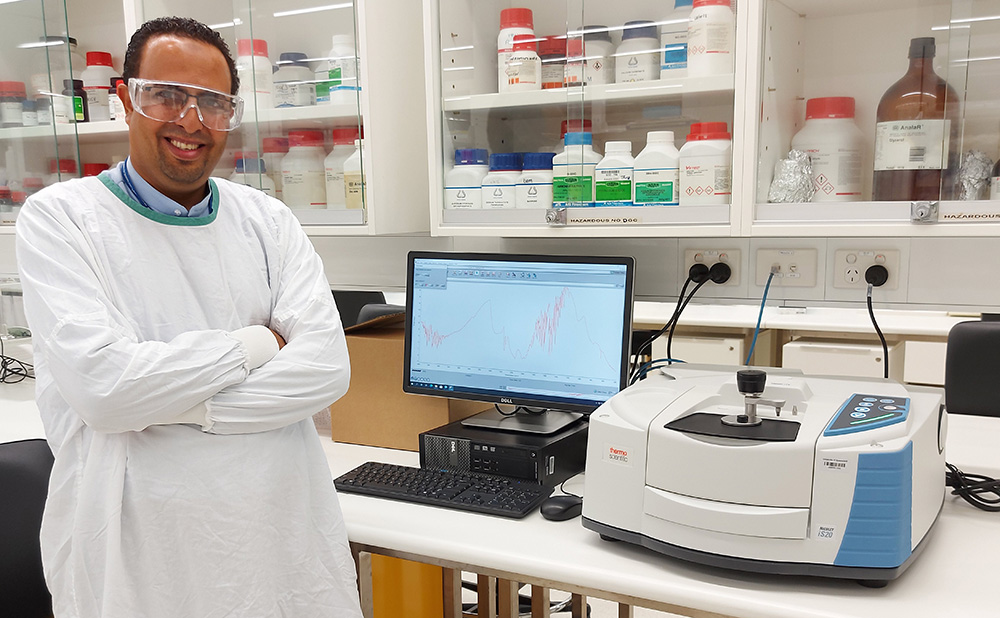Congratulations to Dr Abdalla Ali and his research team on receiving funding from the Australian Dental Research Foundation (ADRF).

The project, ‘Soft tissue insertion into micro-tubules on Ti discs using femtosecond laser micromachining subtraction modification’, has been awarded $15,000.
The research team includes Dr Ryan Lee, Dr Pingping Han and Mr Reuben Staples.
Dr Abdalla Ali outlined the project:
“We are developing a soft tissue insertion into microtubules (less than 10 µm) with nanotopography wall properties which will be made without using any chemical treatments.
“We aim to fabricate microtubules on titanium (Ti) discs as a subtraction surface modification method using advanced micromachining technology to enhance the bio-interface between the soft tissue integration and attachment to titanium dental abutments.
“It is expected that strong adhesion strength between the soft tissue and fabricated micro-tubules with rough surface properties will be achieved for the first time in this project.
“This kind of treatment would prevent bacterial growth and biofilm formation around the dental implants once the soft tissue insertion has occurred, and will have the potential to help treat periodontitis.
“Periodontitis leads to the destruction of hard and soft tissues ultimately leading to a loss of the teeth and their supporting bone structures.
“In Australia, periodontal disease is a prevalent condition with almost 23 per cent of people over the age of 15 affected by moderate or severe periodontal disease. Therefore, soft tissue integration is an essential criterion to gauge restorative success, since osseointegration has become a routine and predictable phenomenon.
“The main complication around dental implants begins with inflammation known as peri-implant mucositis which may progress to a more advanced and insidious stage: peri-implantitis. The peri-implantitis is an infectious disease that causes inflammation of the gum and the bone structure around a Ti implant. Chronic inflammation causes bone loss, which leads to a loose Ti implant that can ultimately be fully displaced. The risk of inflammation and peri-implantitis is much higher with Ti implants in comparison with natural teeth, as the soft tissue attachments to the implant are more fragile.
“Micro-tubules with high surface area might be an ideal surface modification method on the dental abutment implants for developing strong soft tissue insertion into the implants and thereby last for a long-term application.
“Our achievement will open a new dental industry trend towards using this technology for next generation implants with multifunctional characteristics.”



